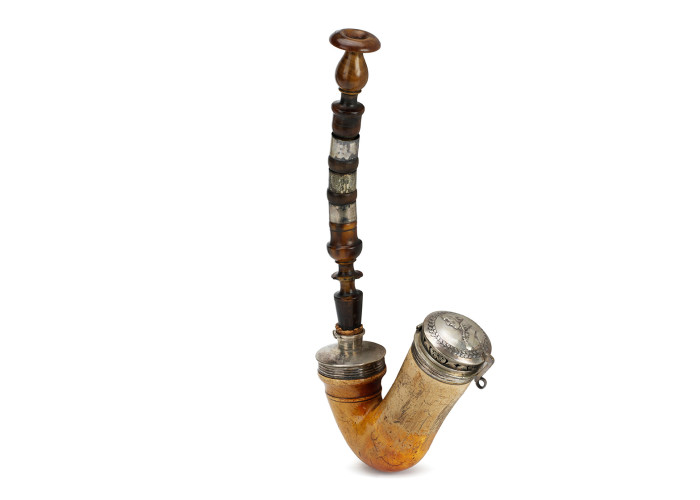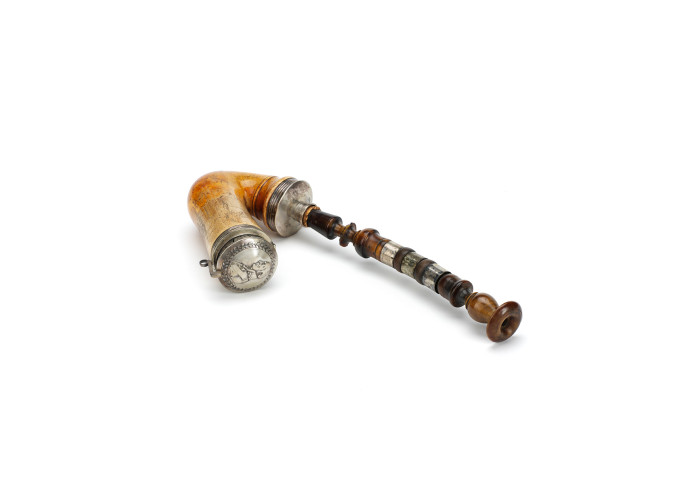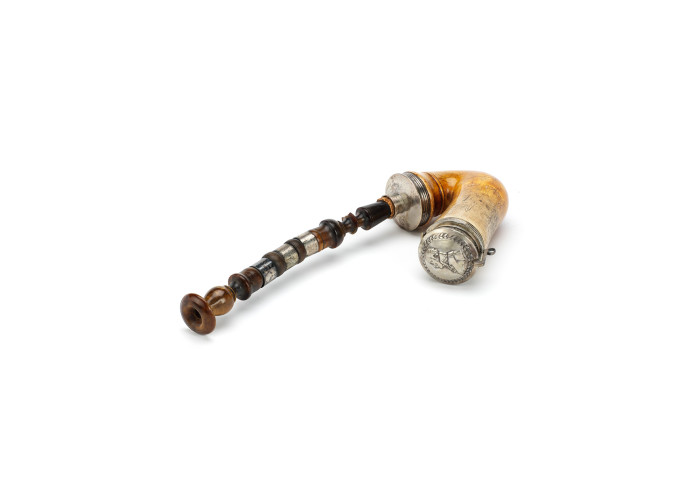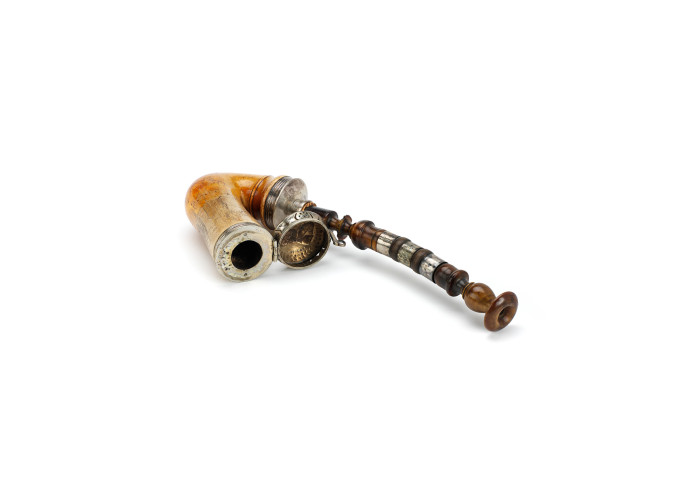Marshal Blücher’s Pipe
This is the pipe of the German General Count Gebhard von Blücher, who commanded the Prussian army against the French at the Battle of Waterloo. He lost this pipe two days before Waterloo, at the Battle of Ligny. At this battle the French defeated the Prussian army and forced them to retreat towards Waterloo. Blücher was knocked off his horse and almost killed.
Count Gebhard von Blücher (1742-1819) was a Prussian general who was made a life peer in 1814 by King Frederick William III for his services in command of allied armies during the Napoleonic Wars (1803-15). In contrast to Wellington, Blücher had faced Napoleon several times in battle prior to Waterloo. He emerged the victor at the most crucial of these, the ‘Battle of the Nations’ at Leipzig in 1813, a disastrous turning point in Napoleon’s career.
During the 1814 occupation of Paris by the Allied nations, Blücher was determined to punish the French. Wellington had to place a guard on the city’s Jena Bridge to prevent the Prussians from blowing it up. They had been heavily defeated by the French at the Battle of Jena in 1806.
On 16 June 1815 Napoleon with the Armée du Nord and Imperial Guard attacked the Prussian army at Ligny. His intention was to attack and scatter the Prussians, which would force a retreat towards Namur and Liége. At the same time, Wellington’s allied army would be held at Quatre Bras. This army would then become the main target.
Blücher’s loss of his pipe was a minor matter at the time it occurred. His horse was shot from under him and he was trapped under it. One of his aides managed to place an overcoat over him, but it was a while before the frail seventy-year-old Marshal was taken from the field. Lieutenant General August von Gneisenau assumed command of the army and managed the retreat.
While the French won at Ligny and the Prussians suffered heavy losses, Napoleon did not achieve his strategic objective because the retreat kept the Prussians in contact with Wellington. Two days later the Prussians, under a recovered Blücher, played a crucial role at Waterloo.
While Blücher’s pipe was retrieved when he was carried in shock from the battlefield of Ligny. His health, which had been fragile prior to the campaign, was never the same again, although he still managed to meet Wellington on horseback at the end of the battle of Waterloo. He died four years later.
-
Curatorial info
- Originating Museum: National Army Museum
- Accession Number: NAM. 1964-08-85
- Production Date: c.1815
- Material: Meerschaum, silver
-
Use this image
You can download and use the high resolution image under a Creative Commons licence, for all non-commercial purposes, provided you attribute the copyright holder.
- Rights Holder: National Army Museum. Photography Relic Imaging Ltd.
- License Type: Creative Commons
Find it here
This object is in the collection of National Army Museum














